"Add as many herbs as you like"
- Mar 14, 2024
- 6 min read
"Surely he didn’t mean a whole bunch of rosemary?" Rachel Roddy

This post has turned out to be a mix of a couple of ideas that I had written down, a whole lot of wilting herbs in my fridge, and a bit of rambling around the net. One thing leads to another as always, plus a bit of serendipity - or coincidence if you prefer..
I began my time looking for ideas by going through one of my folders of recipes torn from here and there. I have decided to do a spring clean of them, and indeed I threw out several pages of recipes that I am never going to make or for which I have other versions. And I came across a couple of pages from Karen Martini from long, long ago, in which she was presenting various pasta dishes. At the bottom of the page, as a sort of quickie recipe was the following, that included the quote which is the title of this post:
"For a super quick pasta sauce, cook spaghetti until al dente, then drain. Fry 2 finely sliced cloves garlic, 1 finely sliced chilli and 2 chopped anchovies in a little olive oil. Add the cooked spaghetti, a little white wine and as many herbs as you like (I use parsley, chervil, chives and marjoram). Swirl in a little extra olive oil, through the pasta, season with sea salt and freshly cracked black pepper and serve with grated Parmesan." Karen Martini
The pictures below are not of her recipe but demonstrate perhaps "as many herbs as you like" . A very vague instruction but one that would bring joy to those who like to do their own thing. It's a common enough recipe I guess, but yes, those few words make two very different dishes.
Anyway those words recalled a similar statement that I found in an article prefacing a recipe for Bean, herb and pasta soup from Rachel Roddy. At a book signing event an Iranian man had given her what she describes as 'cryptic but wise' advice - "Why add a sprig when you can add a bunch of herbs? She talks about how these words were a thought bubble in her head for some time - and I also wrote them down in my Ideas book. So when I saw Karen Martini's words, the two collided and I thought it was time. to revisit Rachel Roddy.

Which I did and found that the recipe was a Persian one for a soup they call Ash reshteh, which is:
"often served for Nowruz, the first day of the Persian New Year and spring equinox, when the sun crosses the celestial equator and equalises night and day."
Next week in fact. So there's a second coincidence.
Rachel Roddy tells us that it uses:
"not just a bunch, but bunches of herbs: parsley, mint, coriander, chives, and a squeaking handful of spinach, all minced into a mountain of green for this hearty bean and pasta soup."
Which is true - one of the recipes I found talked in terms of pounds of herbs, not sprigs or tablespoons. And here's a third coincidence. When I saw those words - Ash reshteh it rang a bell - and yes, sure enough - another idea in by little book because just recently Nigel Slater had also presented a version of this very soup -

Noodle soup with lentils and sour cream which had looked extremely tempting to me, if not exactly like a soup. It was so different to Rachel Roddy's that I went in search of other examples of course and found three from outstanding chefs. The first was from Ottolenghi who called his Legume (noodle) soup which ignores the herbs, although they are there. I found two rather different pictures for this (the first two below) although the recipe is the same, which is somewhat confusing. Then there was Samir Nosrat's Ash reshteh which was featured in The New York Times and finally Greg Malouf on the 101 Cookbooks website - Ash reshteh. The author of the website had written in his introduction:
"Completely blown away, I was convinced it was the best thing to come out of my kitchen in years, and I’ve cooked it dozens of times since."
And there are dozens of others on the net as well. Once the weather cools down more consistently it might well be a good one to try, but which version to choose? As always, decisions, decisions ...
It's worth noting here, since we are on Persian dishes and lots of herbs, that the Persians use masses of herbs. One writer said that vegetables in Persia were herbs. Perhaps the two most famous manifestations of this love of green herbs are Sabzi Kordan - served at the start of a meal - a whole lot of fresh herbs with feta, radishes, spring onions, flatbread ... try it sometime - and an omelette - Kuku sabzi which is more herb than egg.
At this point I had noticed references to all the usual suspects, when you have a lot of green herbs - tabbouleh, salad, salad dressing, pancakes, fritters, pesto - so many pestos - salsa verde and chimichurri, butters, syrups, oils and smoothies, but I decided to ignore all of those for now - even if I do end up making a pesto with my wilting collection. Instead I thought I would have a look at Reddit, which often comes up with some intriguing things. As indeed it did - some more so than others. And this is where I start to wander the net, in a marginally haphazard manner.
First suggestion from somebody calling themselves c-soup - dry them and then turn them into herb mixes, teas or salts as gifts:
"Dry the herbs, in any combo you like (could do themed - Spaghetti sauce herbs, roast chicken herbs, asparagus and green bean herbs, fish herbs) and mix with nice sea salts and granulated garlic, maybe some dried chilli flakes)If you dry some lemon zest at same time, you can make fabulous mixes. Put them in small mason jars, maybe print out a cool label, and you have amazing tasty very cheap gifts."

So I browsed some more and came across the tantalising Silk workers brains! Which of course I could not resist, so I looked and realised that I had done this long, long ago. Somewhere there is a whole post on the subject.
It's a herby cheesy dip that references the silk workers - les canuts of long ago Lyon - in its name. Nobody seemed to know why the bit about brains. Above is Jill Dupleix's recipe for Cervelle de canut.
Further down Reddit's responses I found another weird name Jingalov hats - from Armenia. 'Hats' means bread and these are flatbreads stuffed with a mass of mixed herbs and spring onions. Apparently old timers complain that today there seems to be a more parsimonious mix of greens, but Lilia Harutyunyanl who created the Saveur version says:
"achieving a balance in the mix of greens between the sour, sharp ones and the herby ones is more important. Add just enough scallions to lend flavor without overpowering the mix; round it out with greens from the neutral, earthy category."
They look pretty delicious although a bit time-consuming I suppose, because they need time to prove. Anyway you could try one of these three that I found from The New York Times; Anna Voloshyna who adds feta cheese to her herb mix and the Saveur recipe from Lilia Harutyunyanl.
It was an interesting little ramble although I'm not sure that I have solved the question of how many herbs to add to things. Some authors - and Ottolenghi is one of them - are very precise about how many herbs to use - he always gives weights - although I suppose that even that is sometimes open to interpretation. Does that include stems? Is it prescriptive or just a guide for those who have no idea? Some authors are very vague - merely saying add parsley - or some equally vague instruction; or maybe - sprigs - how big is a sprig anyway? And ditto for a bunch or a handful. I think the main thing is to go on taste and recognise that you are never going to use a mass of rosemary or sage because they are too overpowering, and the rest is perhaps up to you.
And here's a sort of postscript from Rachel Roddy on her soup in which she also mentions a dried herb - mint:
"What is most revelatory about this soup, however, is not the mountain of fresh herbs, which is glorious, but the two teaspoons of dried mint. Having not understood or used it well in the past, I have always thought of it as a dusty shadow of fresh, when, in fact, it’s a concentrated reflection of it, warm and resinous and, because of the menthol, fresh." Rachel Roddy
I agree - it's one of the few dried herbs worth using.


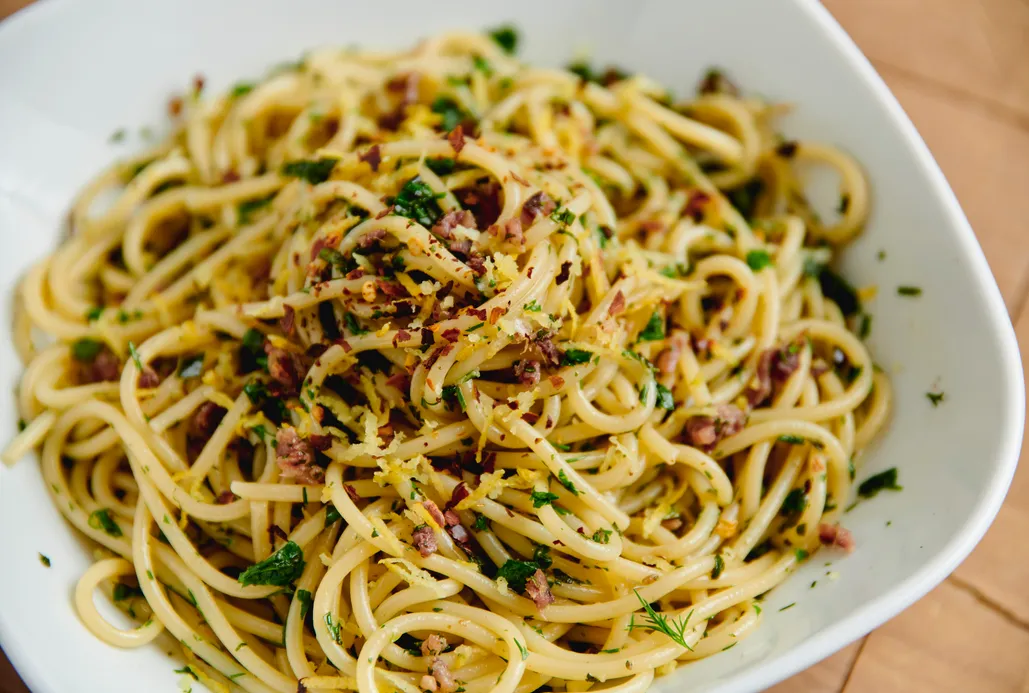


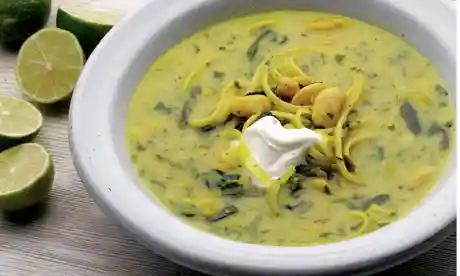


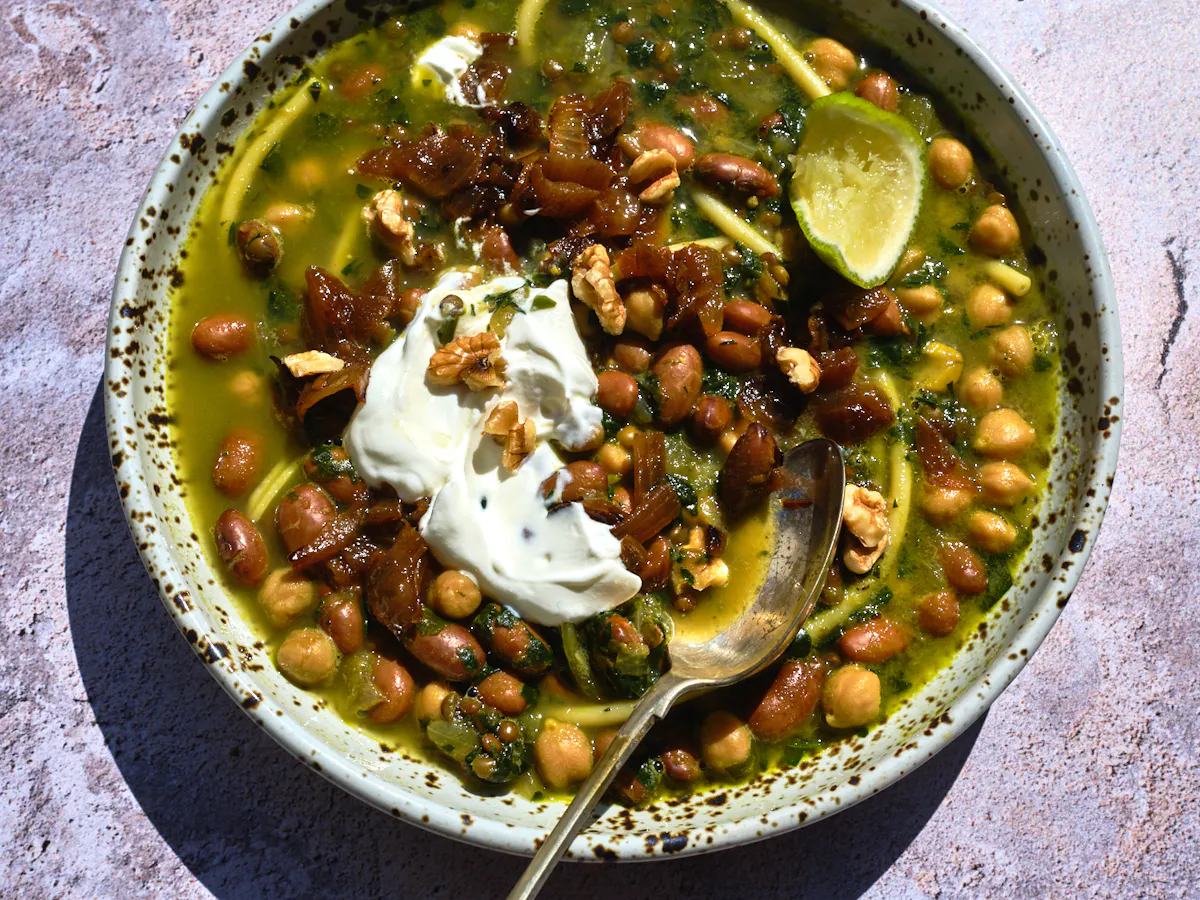
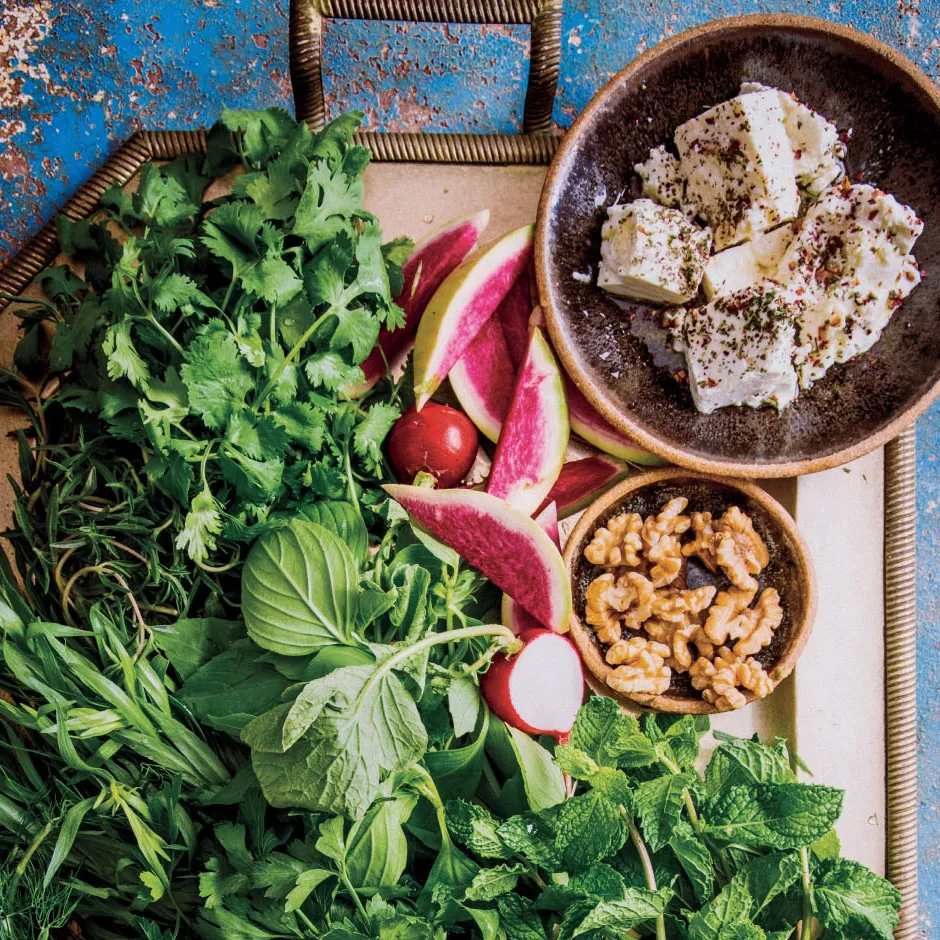




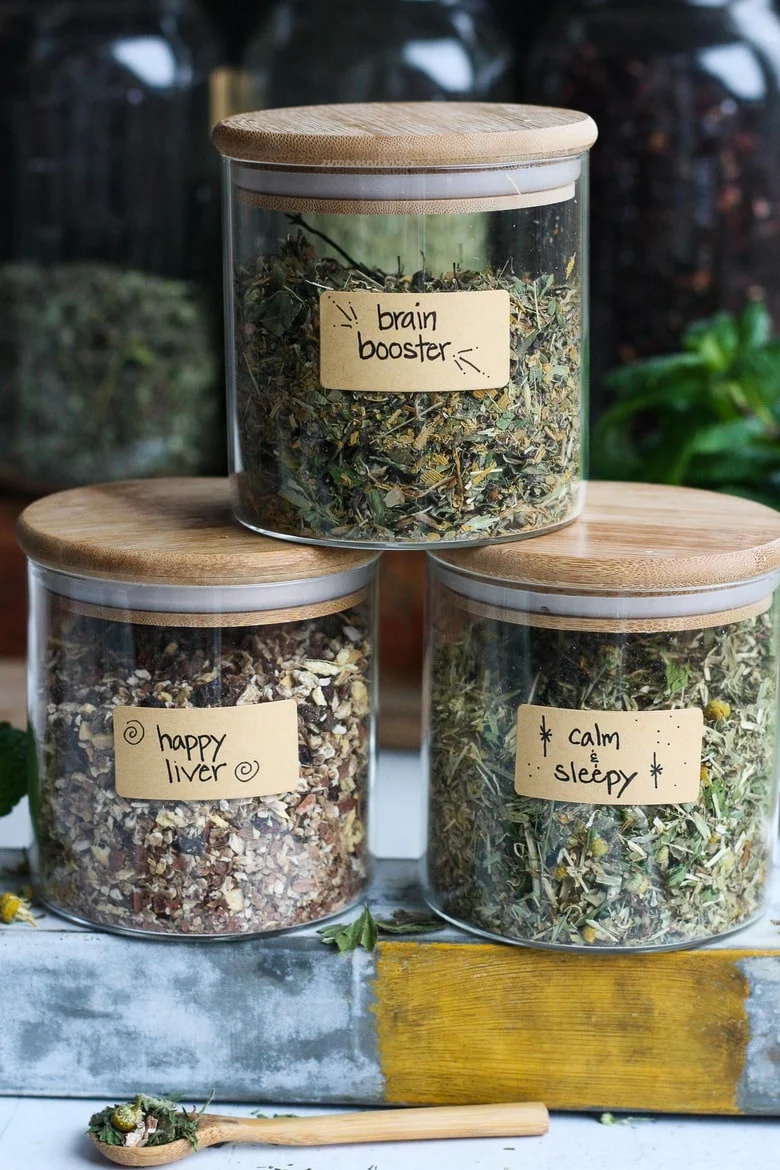
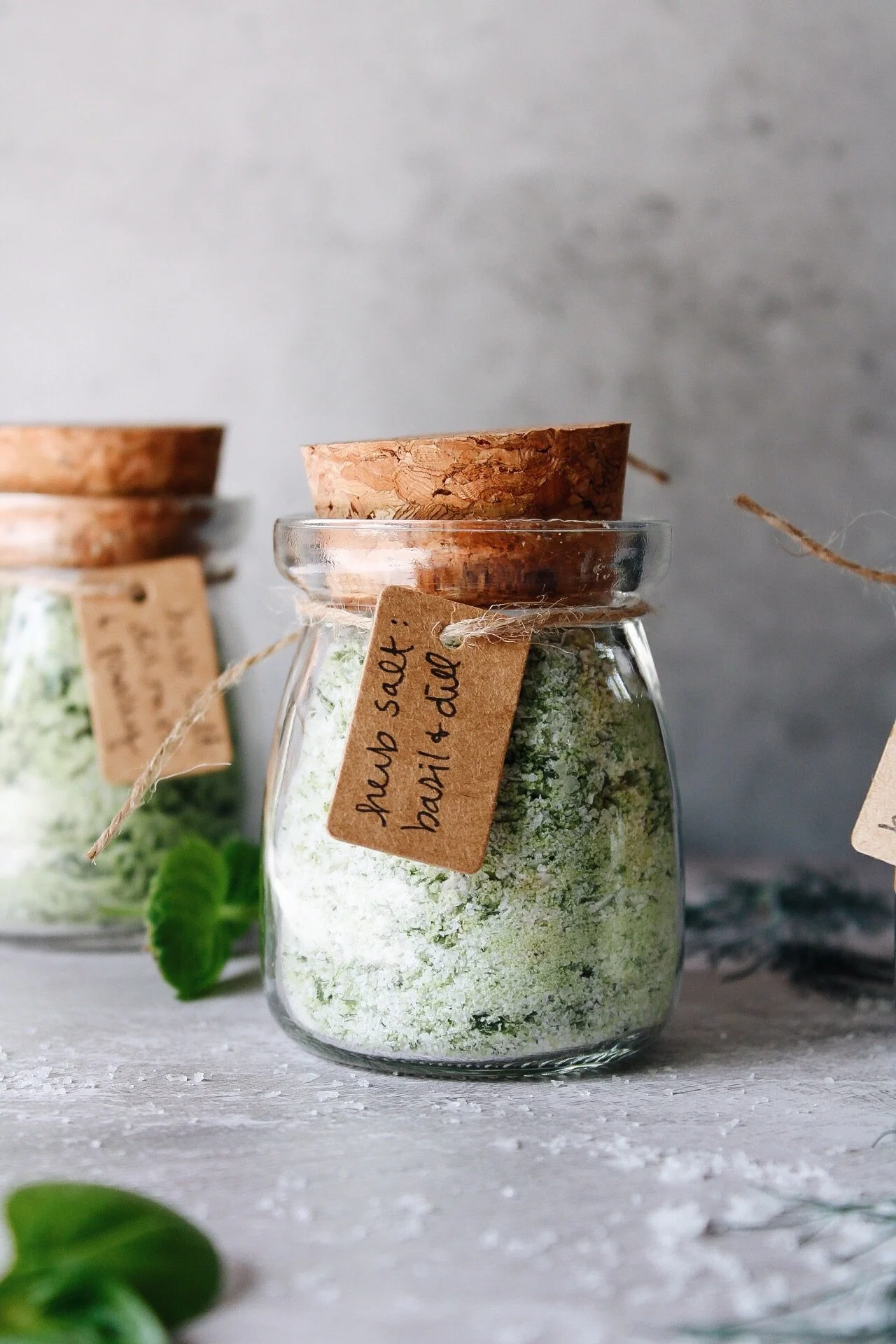



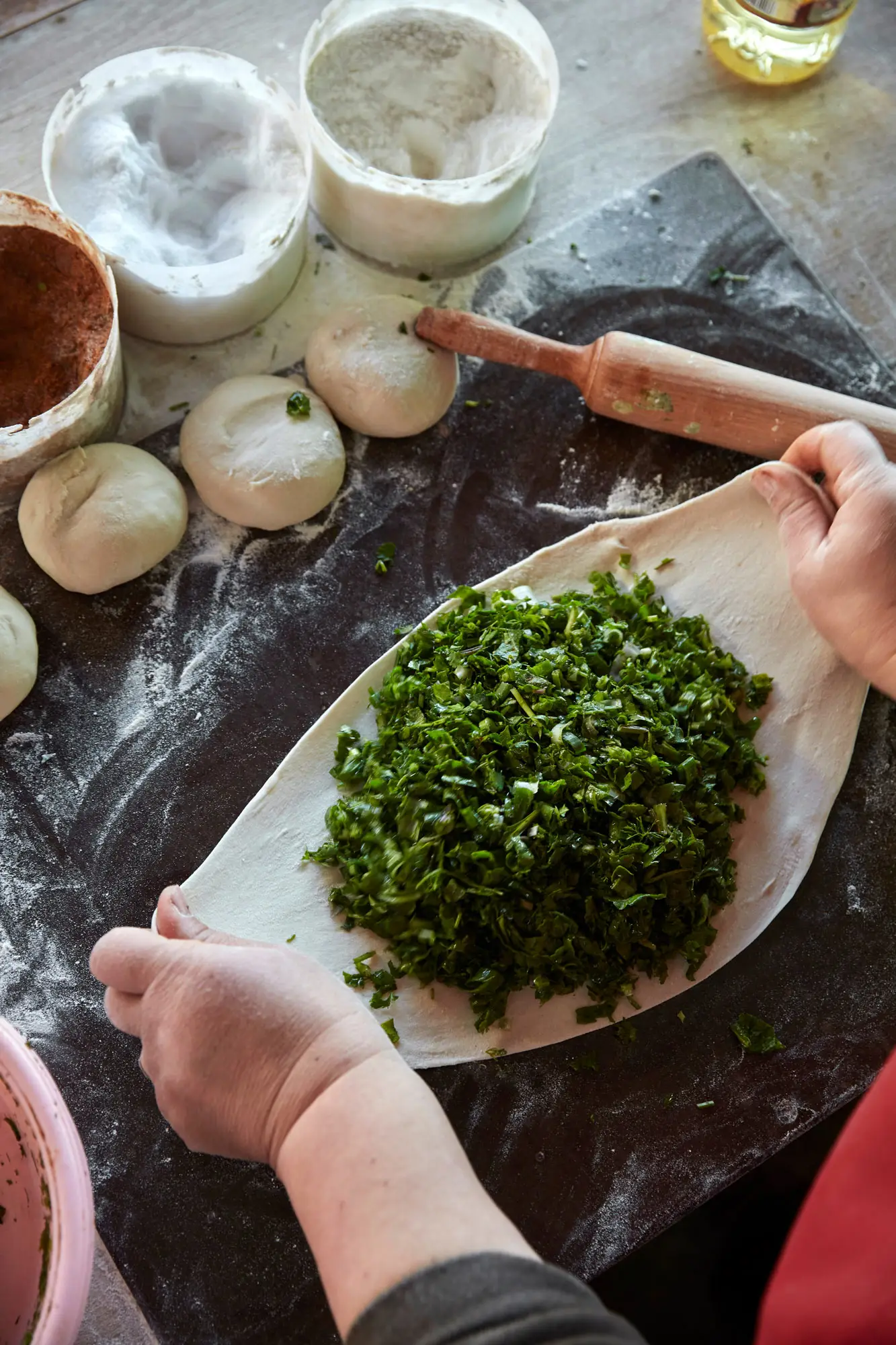



Comments